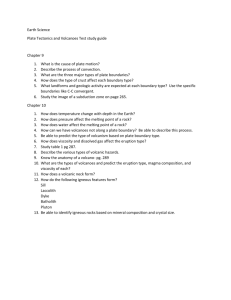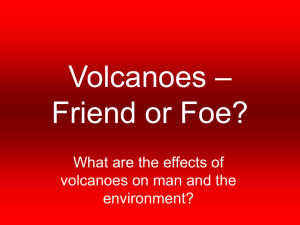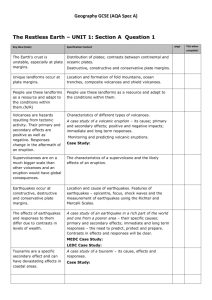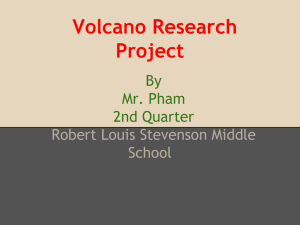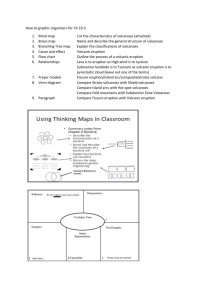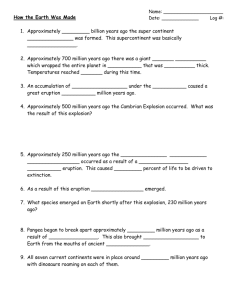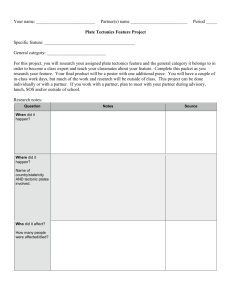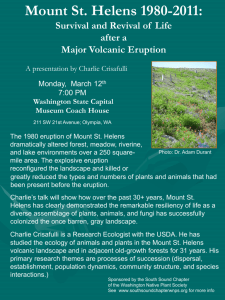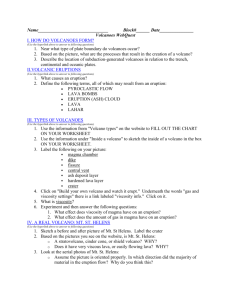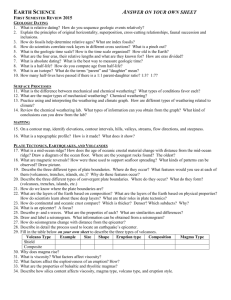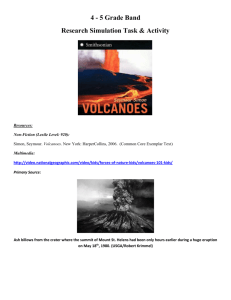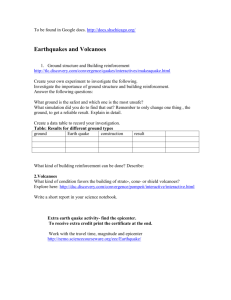Restless Earth 20 Revision Questions
advertisement
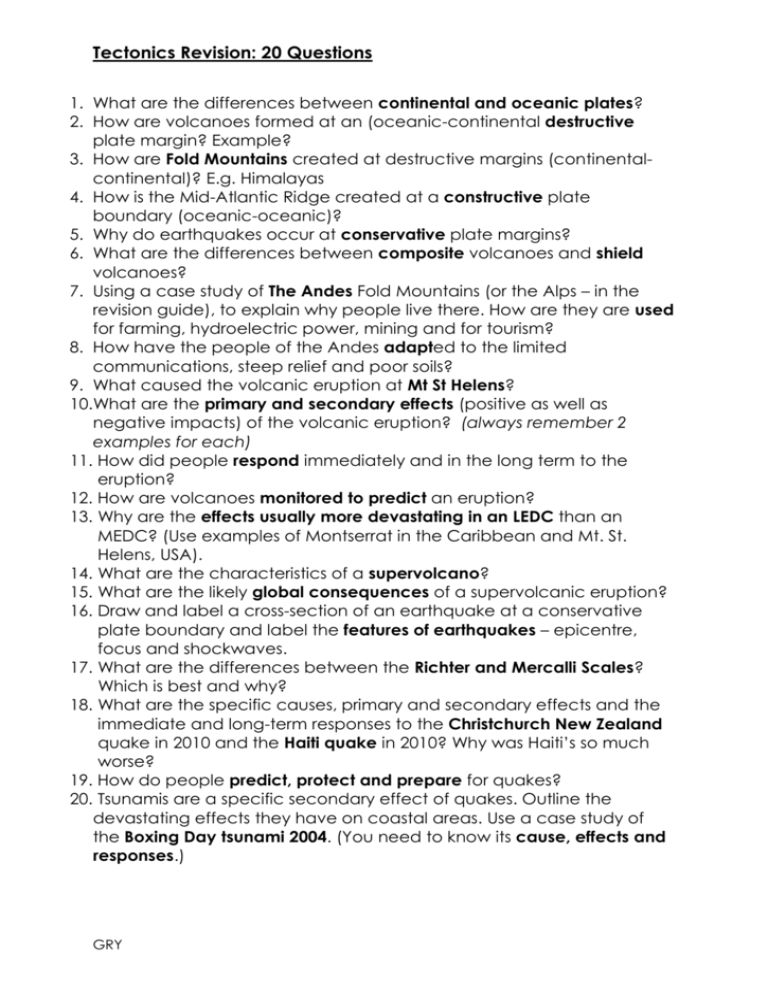
Tectonics Revision: 20 Questions 1. What are the differences between continental and oceanic plates? 2. How are volcanoes formed at an (oceanic-continental destructive plate margin? Example? 3. How are Fold Mountains created at destructive margins (continentalcontinental)? E.g. Himalayas 4. How is the Mid-Atlantic Ridge created at a constructive plate boundary (oceanic-oceanic)? 5. Why do earthquakes occur at conservative plate margins? 6. What are the differences between composite volcanoes and shield volcanoes? 7. Using a case study of The Andes Fold Mountains (or the Alps – in the revision guide), to explain why people live there. How are they are used for farming, hydroelectric power, mining and for tourism? 8. How have the people of the Andes adapted to the limited communications, steep relief and poor soils? 9. What caused the volcanic eruption at Mt St Helens? 10.What are the primary and secondary effects (positive as well as negative impacts) of the volcanic eruption? (always remember 2 examples for each) 11. How did people respond immediately and in the long term to the eruption? 12. How are volcanoes monitored to predict an eruption? 13. Why are the effects usually more devastating in an LEDC than an MEDC? (Use examples of Montserrat in the Caribbean and Mt. St. Helens, USA). 14. What are the characteristics of a supervolcano? 15. What are the likely global consequences of a supervolcanic eruption? 16. Draw and label a cross-section of an earthquake at a conservative plate boundary and label the features of earthquakes – epicentre, focus and shockwaves. 17. What are the differences between the Richter and Mercalli Scales? Which is best and why? 18. What are the specific causes, primary and secondary effects and the immediate and long-term responses to the Christchurch New Zealand quake in 2010 and the Haiti quake in 2010? Why was Haiti’s so much worse? 19. How do people predict, protect and prepare for quakes? 20. Tsunamis are a specific secondary effect of quakes. Outline the devastating effects they have on coastal areas. Use a case study of the Boxing Day tsunami 2004. (You need to know its cause, effects and responses.) GRY
